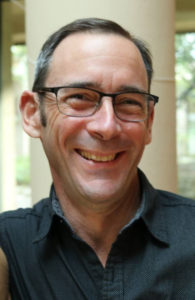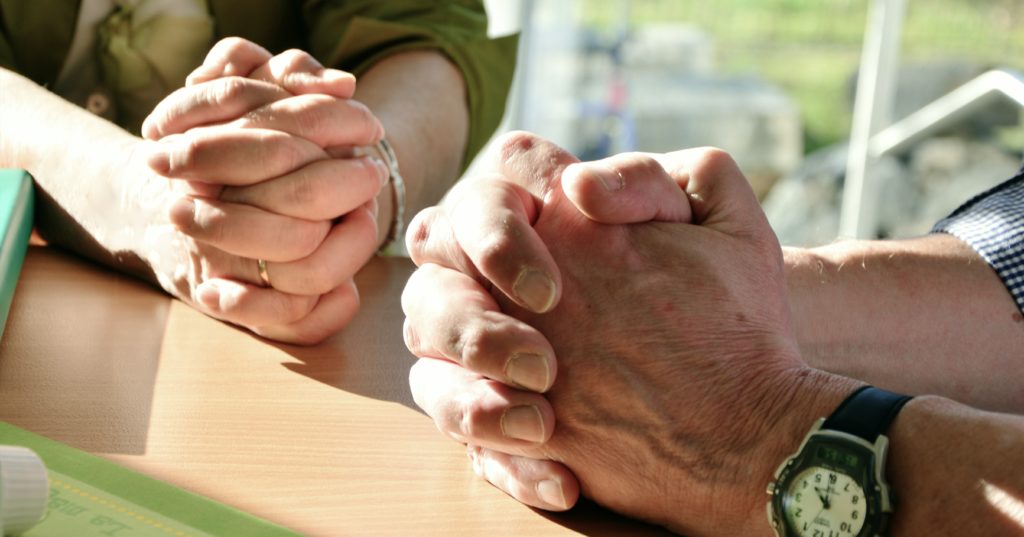In the early morning, my husband and I drive through the dark to the airport. It isn’t quite routine, but it is becoming familiar. Once again, we park and check luggage. Once again, I am headed back somewhere that was nowhere on our radar screen not that long ago: I’m returning to seminary after a trip home. Once again, we say a teary goodbye at the security gate, and I find myself sitting on an airplane hurtling across the country and wondering about home – although this time it feels a little different. As any one of my classmates, not to mention my professors, would tell you, I resisted calling Austin home for most of my first semester at seminary. I missed my husband, I missed our church family, I missed Vermont . . .
I missed home.
Every place has its own vernacular, including Seminary of the Southwest, and it wasn’t long before it was suggested that perhaps my homesickness was a “growing edge” and I should just “lean into it” or maybe “run a small experiment.” With the guidance of Professor Steven Tomlinson, I did. More than one experiment, in fact, in saying and fully inhabiting “home.” With my husband’s encouragement, I even began dating – the city of Austin, that is. In one memorable rendezvous at the Blanton Museum of Art, I came around a corner and was suddenly standing in front of a single, glowing sentence hovering on the dark wall, the three words spelled out in Tavares Strachan’s neon sculpture:
You belong here.
What does it mean to belong? To call a place “home”? These questions followed me throughout my junior year, and even on into my summer. Once again, I got on an airplane and left a new home, Austin, in order to arrive at a remembered one, Vermont. I was a migratory bird. I naively thought pursuing my Clinical Pastoral Education (CPE) requirement in nearby New Hampshire would allow for lots of visits home to be with my family. Let’s just say that I found myself running another small experiment! As I began to live into my chaplaincy internship, working mostly with an elderly population, I realized there was a fellow homebody in nearly every person with whom I met. Whether by choice or by medical necessity, people at my CPE placement had left behind homes they had lived in for years and even decades in order to live out their lives with assistance and medical care. Many struggled simply to remember where they were. And I walked with several as far as I could go this side of life as they wended their way home to the heavenly abode on the other side of it. Widows and widowers inevitably pointed out how the timeworn expression “Home is where the heart is” both accurately describes and drastically changes after the death of a beloved spouse.
In conversation with one woman who was adjusting to living in a single room in a skilled nursing facility, she verbalized that she hadn’t wanted to call the room home, and then voiced aloud an understanding that if she didn’t do so, all she would be accomplishing would be denying herself a home, a place to belong. I didn’t use the vernacular of “running a small experiment,” but that’s what we did over our several visits together. With another homie, for whom Psalm 91 was especially meaningful, our conversations about home and belonging revolved around two dreamy and related words in the first verse of that scripture: dwell and abide.
In the context of my CPE placement, where loss of physical and mental health, multiple life transitions, and even death were prominent, my growing sense was that mortality, and even concerns of mental or physical loss or limitation, were only markers of a much larger human fear: isolation, loneliness – in other words, not belonging. In this way, I began to see how the ministry of presence, the practice of spiritual accompaniment, and the pastoral relationship all seem to rest wholeheartedly on the foundational posture of dwelling and abiding: of belonging to and with each other.
On a more personal level, I was the only Episcopalian in my CPE peer group, and while I learned a lot about different ways of ministering to and praying with others in my summer experience, what became clear to me, especially in that setting away from my Episcopal home, is just how much I find comfort and shelter in our liturgy and in the daily office. The Book of Common Prayer was my steadfast home this summer. I value my CPE experience and the exposure to the diversity of faiths perhaps most of all because it helped me to not take my spiritual tradition and home for granted. It’s where I belong.
A version of evening prayer was offered twice weekly at my placement and it became for me a touchstone of the power of ritual, intention, prayer, and belonging. Although different from the evening prayer to which I was accustomed, I found that in both attending and, later, leading the service, it became a kind of “home away from home” for me. How a traffic jam of parked wheelchairs and walkers, a handful of restless bodies and jumbled thoughts, were transformed into holy stillness in tender and touching ways, week after week, remains for me an extraordinary teacher about the ineffable and dynamic realness of prayer. What began as an experiment in adjusting to being away from home is becoming for me a deeply grounding theological perspective, one in which belonging is a sacrament, and every prayer a homecoming.
What practices or beliefs might you indwell as a spiritual home?
When, where, and with whom have you most felt a sense of belonging? Why?
 Thom Rock is an MDiv student in his middler year at Seminary of the Southwest and is from the Episcopal Diocese of Vermont. He is the author of A Table in the Wilderness: Forty Days of Forgiveness, a collection of daily meditations, and Blueberry Fool: Memory, Moments, and Meaning. In addition, his most recent book, Time, Twilight, and Eternity: Finding the Sacred in the Everyday, explores twilight as a prayerful moment across cultures and faith traditions.
Thom Rock is an MDiv student in his middler year at Seminary of the Southwest and is from the Episcopal Diocese of Vermont. He is the author of A Table in the Wilderness: Forty Days of Forgiveness, a collection of daily meditations, and Blueberry Fool: Memory, Moments, and Meaning. In addition, his most recent book, Time, Twilight, and Eternity: Finding the Sacred in the Everyday, explores twilight as a prayerful moment across cultures and faith traditions.


